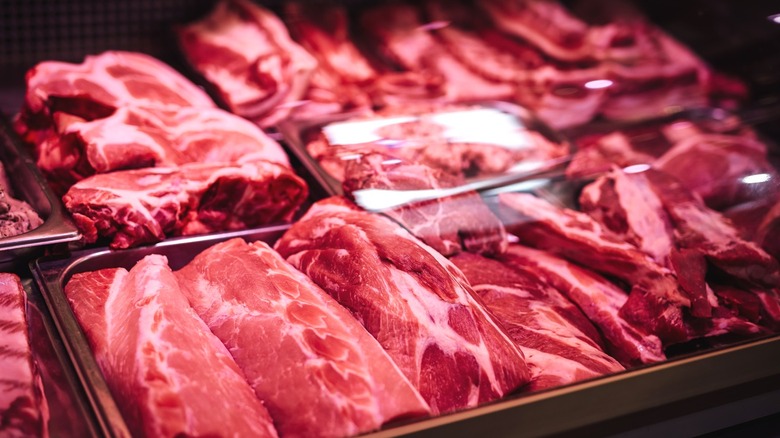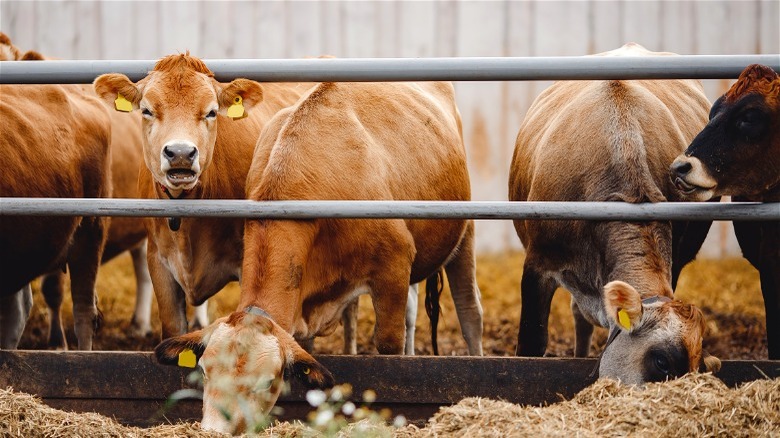The Reason Beef Is More Expensive During Droughts
If you're a meat-eater, you probably enjoy centering your recipes around steak, fish, or chicken. For a large part of America, beef is a staple and you can understand why when you consider the many delicious beef dishes out there. However, given the current times, being aware of what you pay for has been crucial in keeping expenses low, and buying meat is no exception.
While the COVID-19 pandemic brought on an increase in common grocery items, there are other reasons that beef prices have risen. According to Mississippi State University, a growing calf needs roughly six gallons of water per day. Yet if the weather is hot, averaging 90 degrees or higher, the calf needs around 10 gallons a day. In terms of feed, an average cow will usually consume 2% of its body weight per day equating to 24 pounds of forage per day (via Oklahoma State University). That's a hefty amount of food and water for one animal.
While there are obvious discrepancies when it comes to the moisture content of the feed, you are probably wondering how this affects consumer costs if it doesn't rain. Will you be paying more for beef in a drought?
Weather conditions can affect the prices of meat
While farmers are still struggling to break even since 2020, they also have factors outside of their control affecting their business such as weather conditions. Best Ground Beef claims that when there is a lack of rain, there is less grass for cows to feed on so the framers have to buy animal feed. With the largest inflation increase in the last 42 years upon us, the cost of feed has become 22% higher since 2021, per Farm Bureau, forcing farmers to increase cattle prices, which then jacks up consumer costs from wholesale retailers.
Farmers experienced a heavy drought in 2021 with 65% of farms on the Western side of the U.S. suffering extreme conditions (via Progressive Farmer). States in the lower southwest are expected to continue to experience heavy drought this summer.
If you regularly buy beef, then chances are you've noticed the higher price tag. Out of all groceries items, meat and eggs have been affected the most by inflation with an increase in meat at a whopping 14.2% since the beginning of this year. Be mindful though that it's not just inflation that could be affecting your cost but lack of rain as well.

